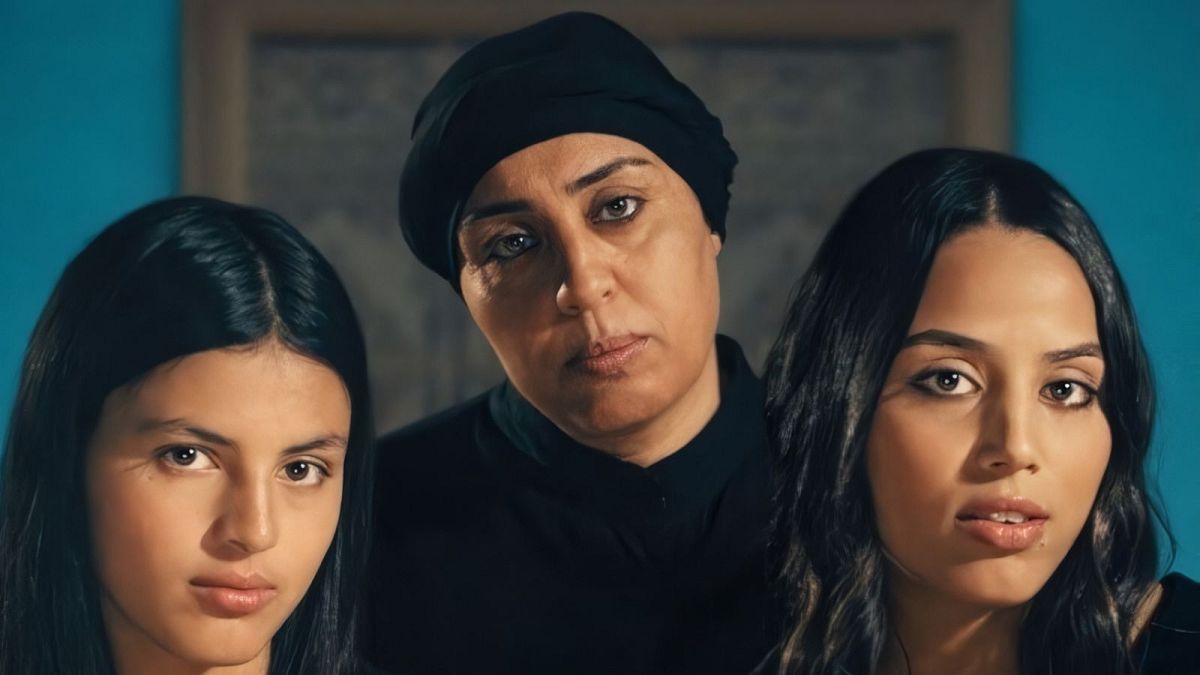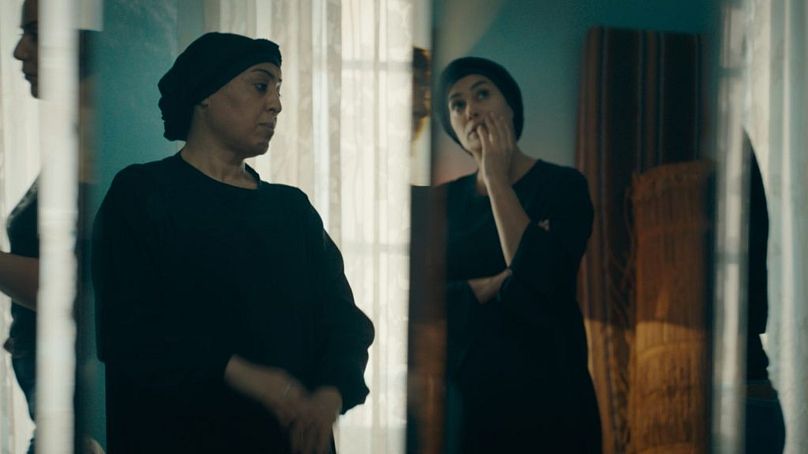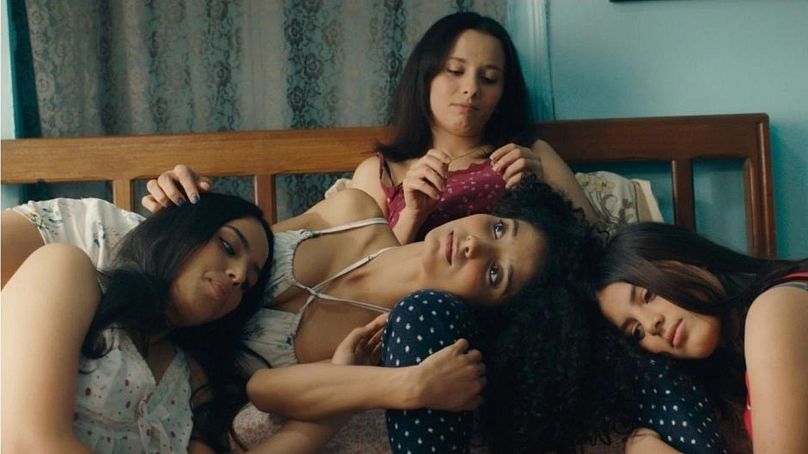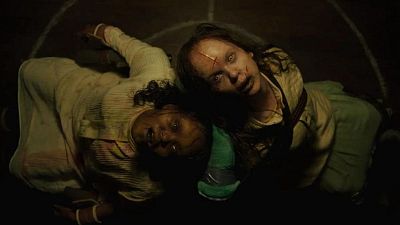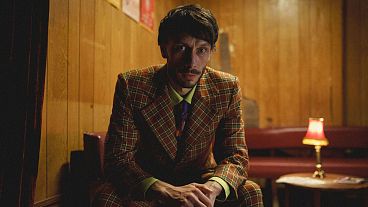A Cannes 2023 standout is released in cinemas, a bold and unique film that confronts motherhood and religious fundamentalism.
One of the most memorable documentaries at this year’s Cannes Film Festival was Kaouther Ben Hania’s stirring film, Les filles d’Olfa (Four Daughters). It’s a shame that this assured entry in the Competition did not bring home a Palme at the end of its festival run (Best Director had Ben Hania’s name all over it), but it remains one of Cannes 2023’s most impactful films.
Four Daughters is a formally daring docu-fiction hybrid which examines the disappearance and radicalization of two Tunisian girls, Rahma and Ghofrane, through both dramatic re-enactments and interviews with the real-life subjects.
We meet their mother Olfa and two younger sisters Tayssir and Eya, all of which where left grief-stricken by the eldest sisters’ decision to leave Tunisia to join ISIS in Libya. The two radicalized girls were “devoured by the wolf” and we learn of the girls’ upbringing through their fascinating and contradictory matriarchal figure.
Olfa’s often cruel parenting comes to the fore when Tayssir and Eya are interviewed, sharing the toll of their upbringing which included beatings, all in the name of protection. This not only exposes Olfa’s rigid views but explores her multitudes as both a martyr and a tyrant. This allows for layered portrayal of generational clashes, as well as a family where love and resentment frequently intertwine. The film's construction enables the women to face each other and grapple with parts of themselves they had potentially suppressed. Moreover, the chilling yet often sympathetic figure of Olfa is linked to the wider story of Tunisia and how the 2011 Revolution affected all their lives.
Throughout the film, we see and hear filmmaker Ben Hania as she re-tells the story of how the family’s tragedy came to be, including the filmmaker’s decision to hire two actors, Nour Karoui and Ichraq Matar, to play Rahma and Ghofrane, as well as Tunisian-Egyptian actor Hend Sabry to play Olfa in scenes where the real-life mother might be emotionally uncomfortable.
While it may sound like a messy undertaking on paper, the end result is an incredibly powerful story of knotty maternal love and religious fundamentalism. Ben Hania’s approach is often unexpectedly playful and funny and it is without a doubt her most accomplished film to date, following the strong Challat of Tunis (2013), Beauty and the Dogs (2017) and the middling and bafflingly overpraised The Man Who Sold His Skin (2020). Her directorial choices - including a borderline Almodóvarian colour palette that feels somewhat discordant with the narrative - yield surprisingly potent results within the wider context of the film.
Indeed, the hybridized approach through a decidedly Brechtian lens allows a certain form of healing, as both real-life subjects and their fictionalized counterparts interact and share, providing what is less an exorcism of the past but an opportunity to embrace a necessary exhumation of pain.
There are at times uncomfortable moments which can prompt ethical questions about the reopening of wounds through the process of re-enactment within this metafictional doc. In confronting a trauma that has forever altered their lives, and in coming face to face with the ghostly reminder of the people they have lost through the two actors playing their disappeared siblings, there was a risk the meta approach could topple into gratuity and morally shady ground.
This is addressed at times with impromptu reactions from the family members, but Ben Hania’s gamble pays off. In placing herself and her consenting subjects in the murky and potentially dubious space between fact and fiction, themes of motherhood, generational transference of trauma, and the weight of entrenched patriarchal structures designed to perpetuate the societal oppression of women are explored with a candidness that may have been missed otherwise.
It’s here that the layers of knowing and unhidden artifice become fascinating: the garish colours, the lighting, the casting of actors, the re-enactments – all the identifiably theatrical elements conspire and lead to a commentary on the process of filmmaking. The artifice is revealed as the opposite of a trick and, paradoxically, a daring and effective way of getting to the truth.
Four Daughters is a devastating and confrontational film that achieves a level of empowerment, without forsaking a sense of guarded optimism. For all of its unexpected humour and liveliness, Ben Hania shrewdly leaves the viewer rattled with a final note, set in a prison in Libya, that will haunt you for days.
While the film feels like a collaborative, challenging and yes, hopeful, exercise in catharsis, the shot of a young girl – Ghofrane's daughter – puts into question whether future generations will be able to break the shackles of extremist religious dogma and cultural indoctrination, and whether this cycle of inherited suffering is doomed to repeat itself. Passed on from another mother to a new generation's daughter.
Les filles d'Olfa (Four Daughters) is out in selected cinemas.
